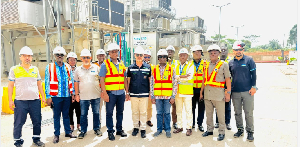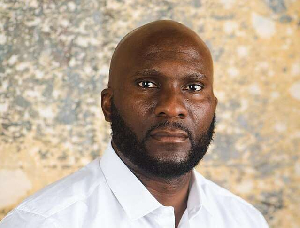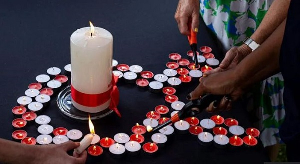University lecturer Dr. Stephen Kwakye says deliberate attempts by either family or community members to discriminate or exclude persons living with HIV/AIDS have an even greater potential of spreading the disease further.
Dr. Kwakye, a Senior Lecturer at the UN Regional Institute of Population Studies at the University of Ghana, warned that the culminating effect of such attitude is that the extended family becomes weakened, leading to its complete extinction.
He was presenting a paper on the impact of HIV/AIDS on society at the just ended International African HIV/AIDS Conference organised by the Woyome Foundation for Africa (WOFA) in Accra.
The conference which ended on World AIDS Day, December 1st brought together researchers, advocates, medical practitioners and PLs, National AIDS Commission officials to deliberate on the theme “strengthening interventions towards the elimination of HIV/AIDS in Africa.”
Dr. Kwakye says most workers have been sacked from their jobs and left to die prematurely mainly because of societal attitude towards victims. He also established a link between HIV/AIDS and rural poverty.
“Rural poverty is likely to intensify with AIDS so long as it remains stigmatised in societies where many people live under high levels of superstition.”
Touching on the economic impact of the disease, Dr. Kwakye said the disease will reduce the GDP of many countries and frustrate efforts towards poverty reduction and the attainment of the Millennium Development Goals.
Quoting an UNCTAD report of 2002, he explained that Zambia had a huge decline in its GDP from US$505 in 1980 to US$370 in 1999 with reduction in average calorie intake from 2,273 to 1,934.
“The economic impacts are mainly the result of absenteeism from work, funeral attendance, resources used to take care of the sick.” This, he said, could account for between 25-54% of company costs in Eastern Africa.
Dr. Kwakye also appealed to HIV/AIDS activist to collaborate with religious bodies so that together they can help minimize the spread of the disease.
Deputy Minister for Health Abraham Dwuma-Odoom who opened the Conference also happed on the debilitating effects of the pandemic.
“…because HIV/AIDS has the potential of eroding all social and economic gains we have made over the years,” he told the delegates “HIV/AIDS is a security issue and must engage our attention as governments.”
He said prevention was in the past seen as the surest way of halting the spread of the disease among people, but studies have shown that treatment is the best way possible.
Mr. Dwuma-Odoom said treatment is an effective incentive for individuals to get tested and learn about their status.
“The hope of treatment helps break the vicious cycle of denial of the disease and of social stigma associated with HIV. Offering treatment also motivates poor communities to mobilize resources and strengthen their health-care infrastructures.”
He said despite political attention being focused on the crisis, especially in developing countries it’s imperative that further research is done to determine how best to provide and monitor antiretroviral treatment in resource-poor settings.
Pushing a strong case for an Abstinence Plus campaign, Mr. Dwuma- Odoom said abstinence is not an option for poor women and girls who have no choice but to marry at an early age.
“Being faithful will not protect a woman whose partner is not faithful, and using condoms is not a decision that a woman can make by herself; it depends on the man” he said to a thunderous applause from the audience.
Director General of Ghana Aids Commission Professor Sakyi Awuku Amoah thanked civil society organisations whose enormous efforts have gone a long way in contributing to the awareness creation.
“…we believe that they are a vehicle whereby the grassroots in the communities could be reached.”
Health Minister Major (Rtd) Courage Quashigah commended WOFA for putting together the programme which, he said, is a clear departure from other international programmes where those carrying the disease are largely excluded from discussions that affect their health, and rather consultants with no experience are hired to come and think for them.
According to him that sub-culture must change because the fight against the spread does not rest on the shoulders of consultants but both victims and organisations working in the field.
Board Chairman of WOFA Alfred Agbesi Woyome on his part said the fight against the spread of the disease should be tackled by all, adding that it’s important that “we all engage in the fight and not leave it into the hands of people outside to do that for us.”
Mr. Woyome said WOFA is running a transparent system that makes it more difficult for the misapplication of funds allocated for a specific project.
Health News of Tuesday, 4 December 2007
Source: Frank ADDO












